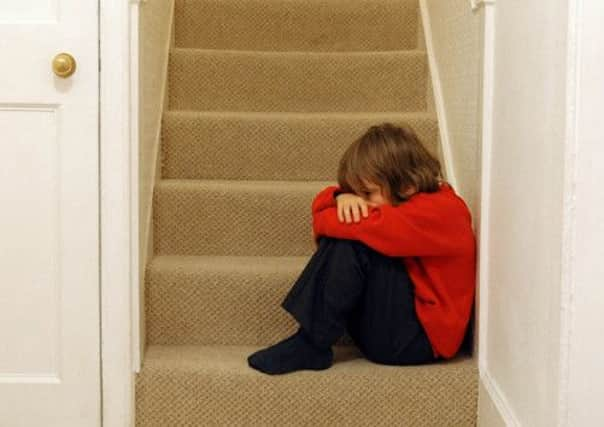Vulnerable children left in family home too long


Children and young people are also unhappy with the “intimidating, stuffy and stressful” hearings system which can be used to determine whether they are taken into care.
The Education Committee published the findings of its inquiry on the decision-making processes surrounding children in the care system.
Advertisement
Hide AdAdvertisement
Hide AdCommittee convener Stewart Maxwell said: “The evidence we heard from a range of witnesses, particularly from young people who have been in care, was often shocking.
“We were told about a ‘merry-go-round of placements’ where many children come into care but go home again only to suffer further abuse and neglect.
“This is simply appalling.
“There’s no doubt that deciding whether or not to remove a child from the family home and into care is one of the hardest decisions to make.
“However, we believe current decision-making processes do not always deliver the best outcomes for children and families.
Concern
“We must make sure that existing resources, in terms of staff and finance, are used more effectively.”
A recurring message from many of the young people in care who spoke to the committee is that “they felt they had been left too long at home when they should have been taken into care earlier”, the report states.
Aspects of the children’s hearing system are also cause for concern for young people.
“These were not complaints about the overall purpose or ethos of the system but about what could be seen as procedural or structural shortcomings, albeit ones that could have a very serious impact,” the report said.
Advertisement
Hide AdAdvertisement
Hide Ad“Hearings were generally perceived as being intimidating, stuffy and stressful. There was also a common view that too many people attended, including professionals, such as educational psychologists, who saw the children irregularly yet were able to express an opinion.”
The committee also raised concerns about the reported difficulties of retaining experienced social workers “on the frontline”, where they can have direct contact with children and families.
Neglect
“Young people in care felt strongly that there should be greater consistency in the social worker allocated to them. One had experienced more than 10 social workers,” the report said.
Mr Maxwell said: “This report is not about criticising those who work tirelessly to help our most vulnerable children. It is about making sure that the vision, leadership and resources are in place to ensure that all of Scotland’s children have a future free from fear, abuse and neglect.
“We welcome the huge amount of work under way to deliver improvements but need to see tangible evidence that these efforts are fully coordinated and will actually deliver better outcomes for looked-after children.”
The report includes recommendations such as doing more work around the consequences of early intervention and implementing measures from the Scottish Government and local government to improve staff retention in children’s social work.
Work on establishing a “better, more rounded picture of a looked-after child’s well-being” should be progressed as a matter of priority, it said.